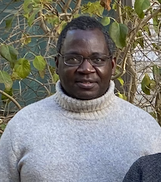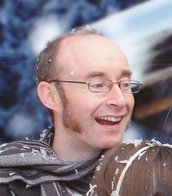
Prof. James Wakefield
Group Leader
Associate Professor of Integrative Cellular Biology
Tel. +44 (0) 1392 724670
[email protected]
My research interest has always been that of mitosis and cell division, stimulated by the fundamental beauty of the process as viewed using a fluorescence microscope, and its key role in diseases such as cancer. When I was an "A" level student I had an inspirational Biology teacher, Alan Wright, who told me that one day, when I grew up, I should go and find out how microtubules organised themselves during mitosis. I'm still working on an explanation - but then I'm not yet really grown up.
Group Leader
Associate Professor of Integrative Cellular Biology
Tel. +44 (0) 1392 724670
[email protected]
My research interest has always been that of mitosis and cell division, stimulated by the fundamental beauty of the process as viewed using a fluorescence microscope, and its key role in diseases such as cancer. When I was an "A" level student I had an inspirational Biology teacher, Alan Wright, who told me that one day, when I grew up, I should go and find out how microtubules organised themselves during mitosis. I'm still working on an explanation - but then I'm not yet really grown up.
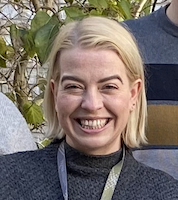
Dr Karolina Jaworek
Postdoctoral Research Associate
[email protected]
My research uses the brain and embryo of the fruit fly, Drosophila melanogaster, as an in vivo model to study mitosis. I am interested in understanding how Embryonic Stem Cells acquire their Stem Cell identity for the very first time under normal conditions, and what the underlying mechanisms are that lead to their transformation into malignancies.
Postdoctoral Research Associate
[email protected]
My research uses the brain and embryo of the fruit fly, Drosophila melanogaster, as an in vivo model to study mitosis. I am interested in understanding how Embryonic Stem Cells acquire their Stem Cell identity for the very first time under normal conditions, and what the underlying mechanisms are that lead to their transformation into malignancies.
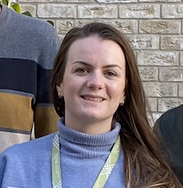
Dr Jennie Campbell
NC3Rs funded Postdoctoral Research Associate
[email protected]
During my PhD at the University of Bristol I used Drosophila melanogaster as a model organism to study the response of the organism’s innate immune cells (termed hemocytes) to tissue damage. I am now working to further our understanding of hemocytes in the waxmoth Galleria mellonella by investigating hemocytes subtypes, and how they respond to Candida albicans infection primarily using flow cytometry. A major goal of my postdoctoral project is to generate a hemocyte-specific transgenic Galleria strain to diversify the experiments possible with the organism.
NC3Rs funded Postdoctoral Research Associate
[email protected]
During my PhD at the University of Bristol I used Drosophila melanogaster as a model organism to study the response of the organism’s innate immune cells (termed hemocytes) to tissue damage. I am now working to further our understanding of hemocytes in the waxmoth Galleria mellonella by investigating hemocytes subtypes, and how they respond to Candida albicans infection primarily using flow cytometry. A major goal of my postdoctoral project is to generate a hemocyte-specific transgenic Galleria strain to diversify the experiments possible with the organism.
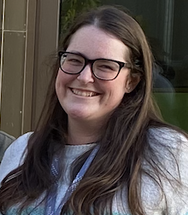
Dr Stacey Scott
Research Technician
[email protected]
My primary research interest is the process of cell division and the cellular consequences should this occur incorrectly i.e. cancer. My PhD focused on the identification of cell division defects and the role they play in whole genome doubling, in oesophageal adenocarcinoma and its precursor lesion Barrett’s oesophagus. Prior to this my research was focused on the identification of novel mitotic microtubule associated proteins in the early Drosophila embryo.
Having just completed my PhD, I have now taken the post as research technician in the Wakefield lab, returning to work with the Drosophila early embryo.
Research Technician
[email protected]
My primary research interest is the process of cell division and the cellular consequences should this occur incorrectly i.e. cancer. My PhD focused on the identification of cell division defects and the role they play in whole genome doubling, in oesophageal adenocarcinoma and its precursor lesion Barrett’s oesophagus. Prior to this my research was focused on the identification of novel mitotic microtubule associated proteins in the early Drosophila embryo.
Having just completed my PhD, I have now taken the post as research technician in the Wakefield lab, returning to work with the Drosophila early embryo.
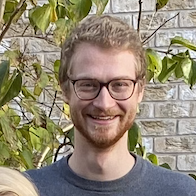
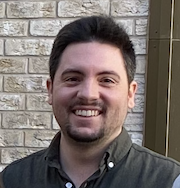
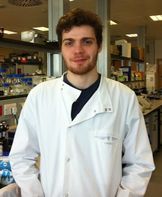
James Marks
BBSRC PhD Student
[email protected]
My main area of interest is in the dynamics of chromatin-driven spindle formation, which is often unregulated in cancer cells with abnormal centrosome numbers. Since starting my PhD in September 2015 (funded by the BBSRC) I have been investigating the roles of a variety of mitotic proteins in this pathway using Drosophila embryos in combination with fluorescence microscopy, quantitative image analysis (with our collaborator Jeremy Metz) and a variety of biochemical techniques. Outside the lab I am a keen classical guitar player, and dabble in jazz when given the chance, and enjoy skiing, brewing and kayaking.
BBSRC PhD Student
[email protected]
My main area of interest is in the dynamics of chromatin-driven spindle formation, which is often unregulated in cancer cells with abnormal centrosome numbers. Since starting my PhD in September 2015 (funded by the BBSRC) I have been investigating the roles of a variety of mitotic proteins in this pathway using Drosophila embryos in combination with fluorescence microscopy, quantitative image analysis (with our collaborator Jeremy Metz) and a variety of biochemical techniques. Outside the lab I am a keen classical guitar player, and dabble in jazz when given the chance, and enjoy skiing, brewing and kayaking.

Ammarah Tariq
Palmer Legacy PhD Student
[email protected]
The precise regulation of microtubule dynamics and interactions differs over cell development, the cell cycle, and intracellular space, and is essential to the cellular processes in which microtubules function. However, the molecular mechanisms by which MAPs regulate the dynamic properties of microtubules are still poorly understood. In collaboration with the lab of Christian Soeller, a biophysicist, am investigating microtubule dynamics by combining biochemical in vitro reconstitution with purified protein components, single-molecule total-internal-fluorescence (TIRF) imaging, and microfluidics techniques. Outside of the lab I enjoy creating art through various mediums, cooking, playing table-tennis and, whenever possible, travelling.
Palmer Legacy PhD Student
[email protected]
The precise regulation of microtubule dynamics and interactions differs over cell development, the cell cycle, and intracellular space, and is essential to the cellular processes in which microtubules function. However, the molecular mechanisms by which MAPs regulate the dynamic properties of microtubules are still poorly understood. In collaboration with the lab of Christian Soeller, a biophysicist, am investigating microtubule dynamics by combining biochemical in vitro reconstitution with purified protein components, single-molecule total-internal-fluorescence (TIRF) imaging, and microfluidics techniques. Outside of the lab I enjoy creating art through various mediums, cooking, playing table-tennis and, whenever possible, travelling.
